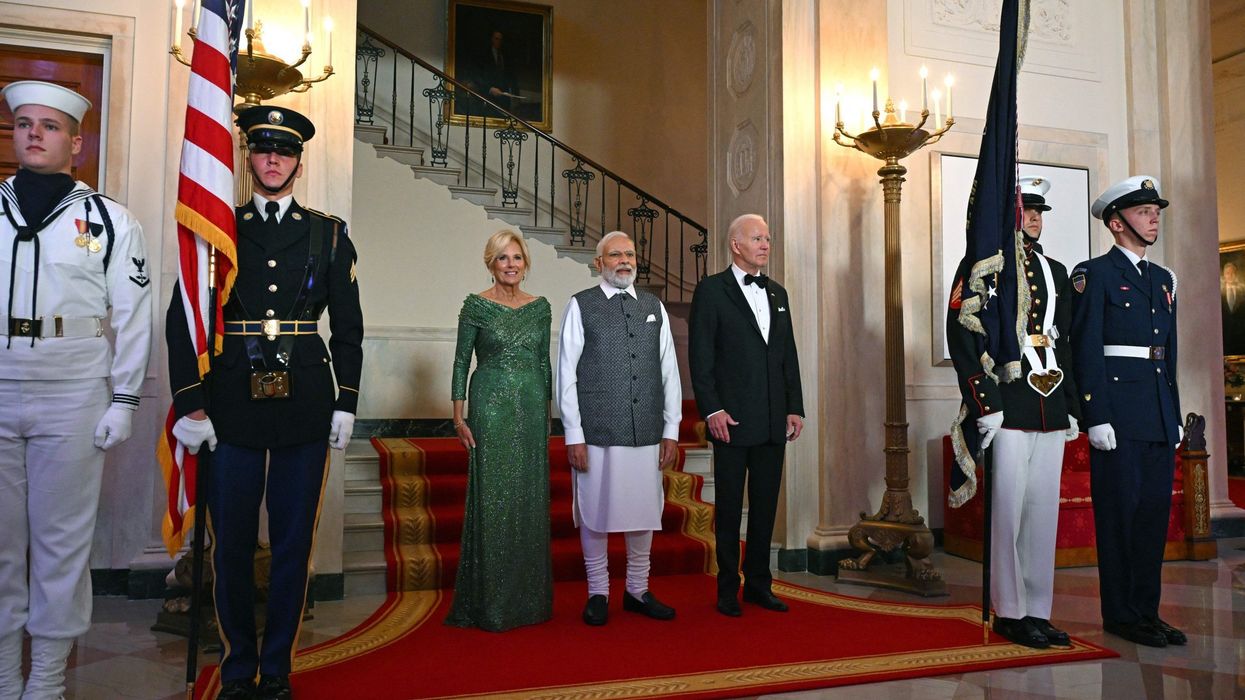More than 380 guests were invited to the state dinner President Biden hosted for Prime Minister Narendra Modi of India on Thursday night (22), a list that included government officials, business leaders, star athletes, a renowned violinist, a Hollywood director, the son of a civil rights icon, fashion designers and prominent Indian Americans.
The state dinner was made even more illustrious by the presence of notable Indian business leaders and prominent figures from the technology world.
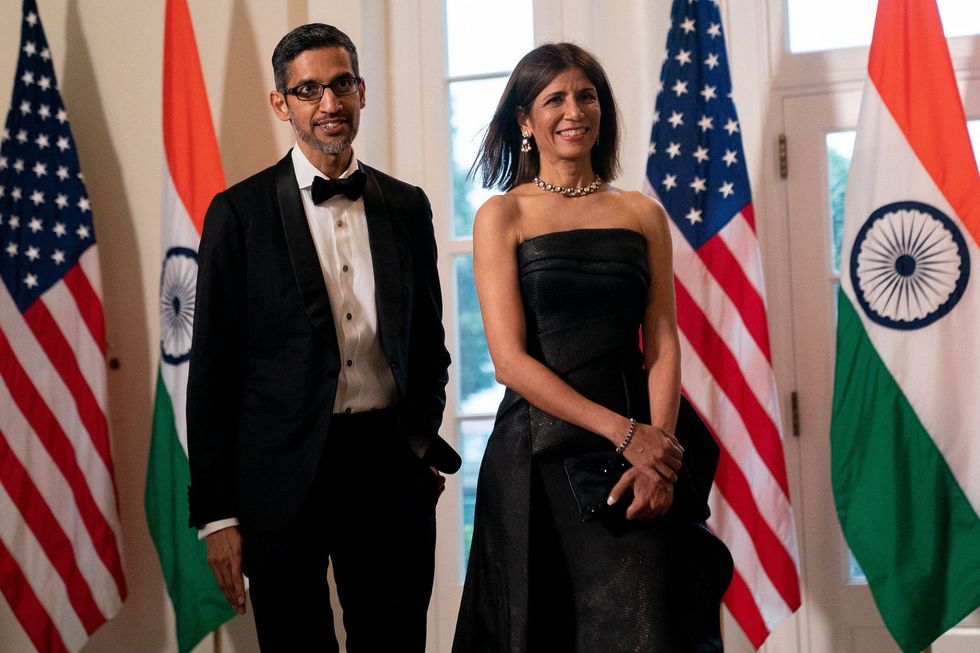
Among the esteemed guests were Anand Mahindra, a renowned Indian business leader, Mukesh Ambani, the billionaire industrialist and visionary, Sunder Pichai, the CEO of Google, Satya Nadella CEO of Microsoft, Shantanu Narayen, CEO of Adobe, and the distinguished Indra Nooyi.
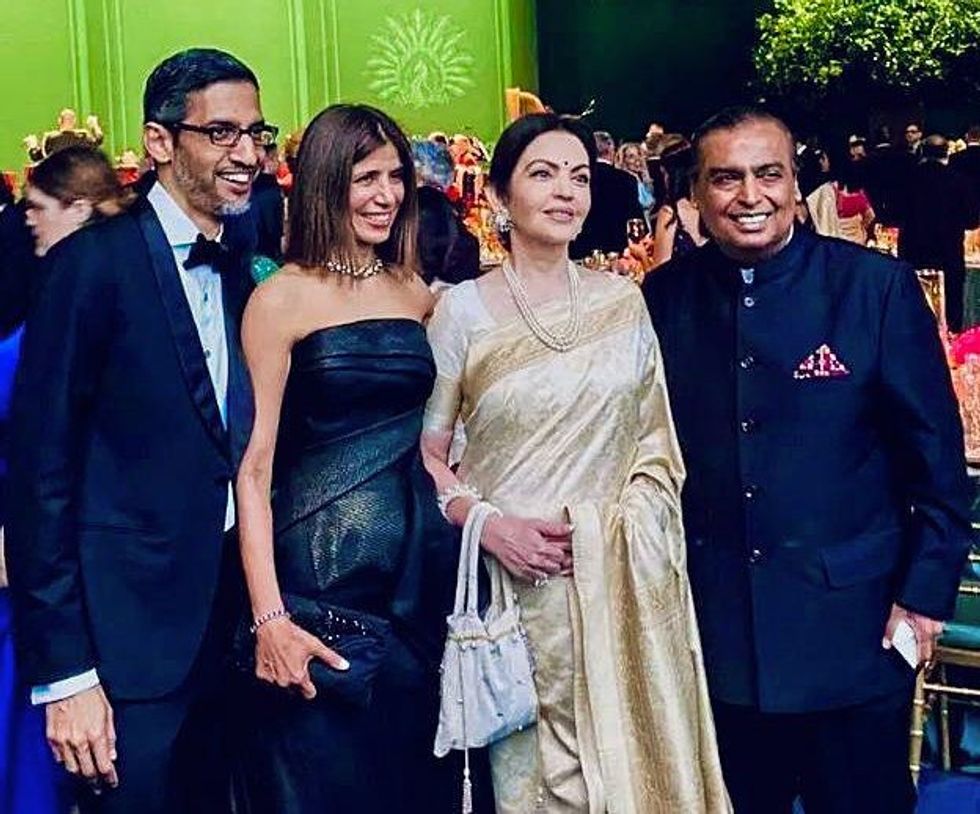
The event not only celebrated the diplomatic ties between the two nations but also showcased the remarkable achievements of Indians on the global stage.
Mukesh Ambani, the eminent industrialist and Chairman of Reliance Industries Limited, brought his unparalleled business acumen to the gathering. As one of the world's wealthiest individuals, Ambani's innovative endeavours and strategic vision have transformed industries and inspired generations.
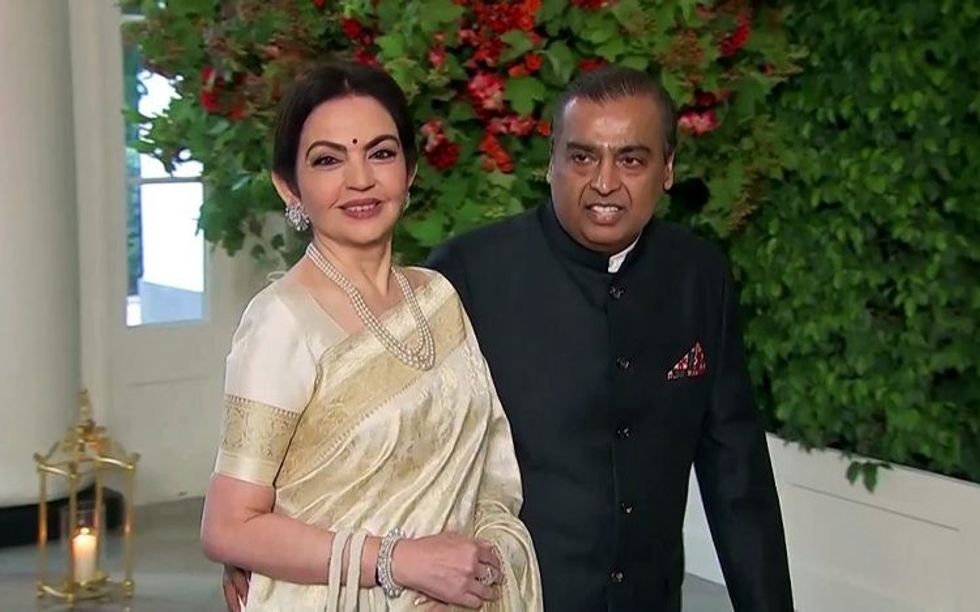
Anand Mahindra, a respected figure in the Indian business landscape, Mahindra's visionary leadership and unwavering commitment to innovation have propelled the Mahindra Group to new heights.
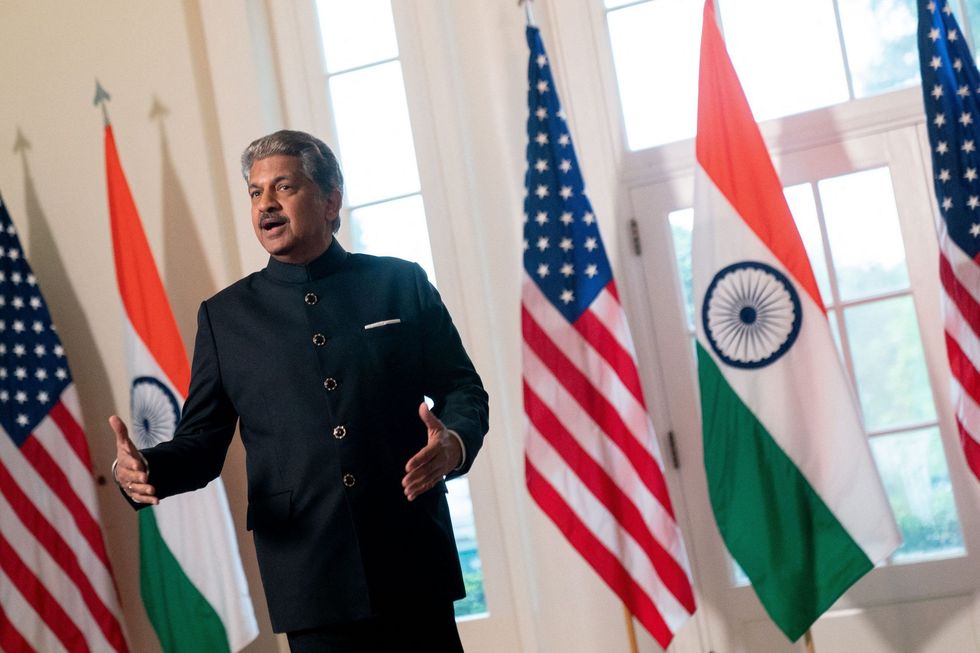
Sunder Pichai, the CEO of Google, epitomised the close ties between technology and diplomacy. Leading one of the world's most prominent tech companies, Pichai has been at the forefront of innovation, driving the evolution of the digital landscape.
The state dinner also welcomed the esteemed Indra Nooyi, a trailblazer, and former CEO of PepsiCo. Nooyi's remarkable journey from India to the pinnacles of corporate success has been an inspiration to aspiring business leaders worldwide.
As the evening unfolded, the guests were captivated by the fusion of cultures.
Many Indian and non-Indian attendees, including some of the business leaders, chose to don elegant traditional attire, such as saris, infusing the event with the vibrancy of Indian traditions.
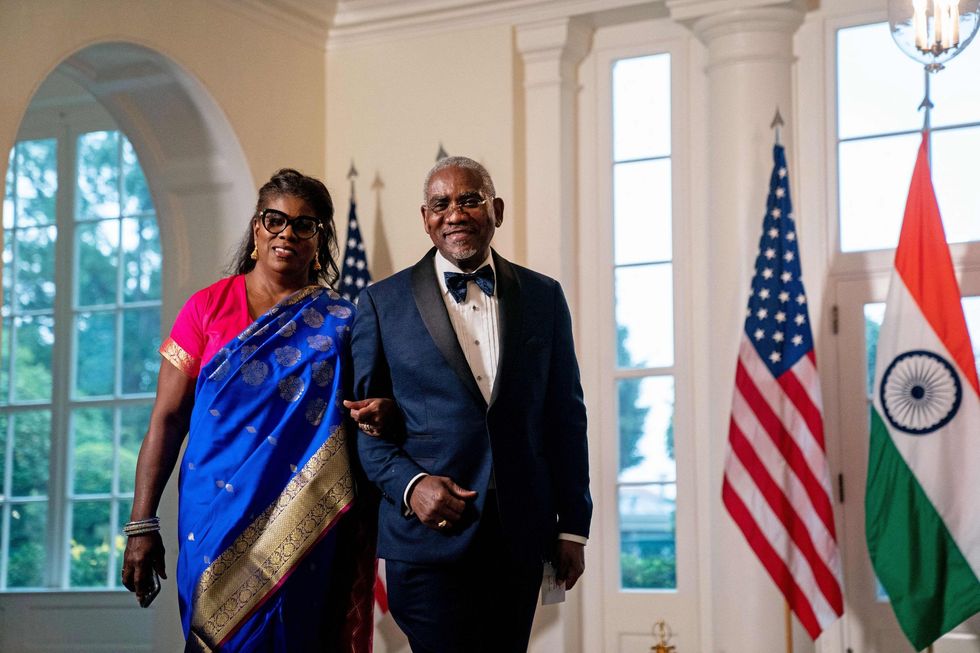
The exquisite colours and intricate designs of the saris showcased the rich cultural heritage of India, creating a visual spectacle that added to the ambience of the occasion.
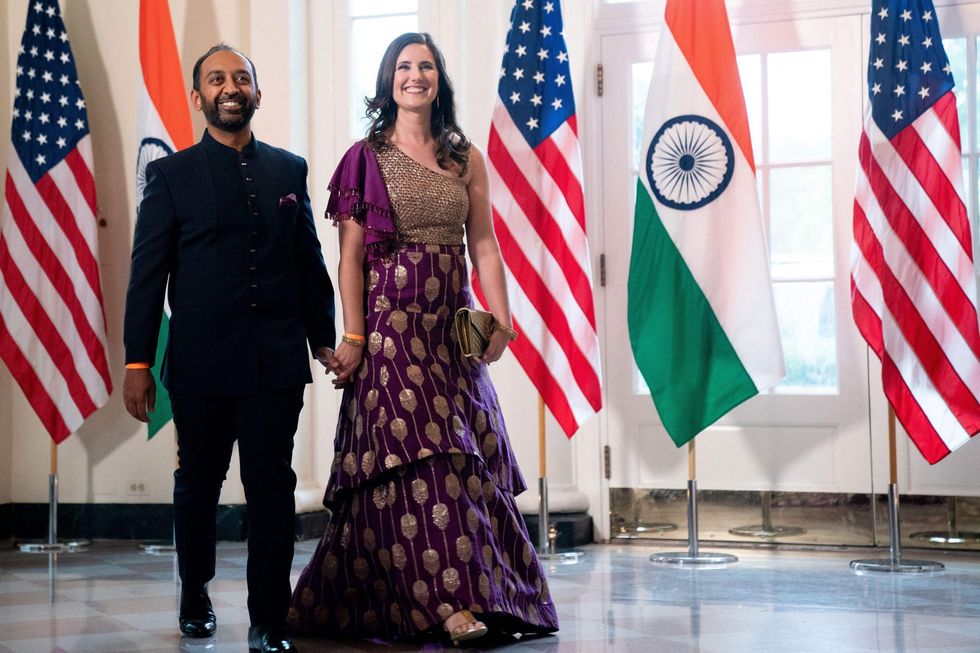
The state dinner provided a platform for fruitful discussions, fostering closer collaboration between Indian and American business leaders.
The state dinner in honour of Modi marked a significant milestone in strengthening bilateral relations, highlighting the contributions of Indian business leaders and technology icons.
It served as a reminder of the immense talent, entrepreneurial spirit, and cultural richness that India brings to the world stage.
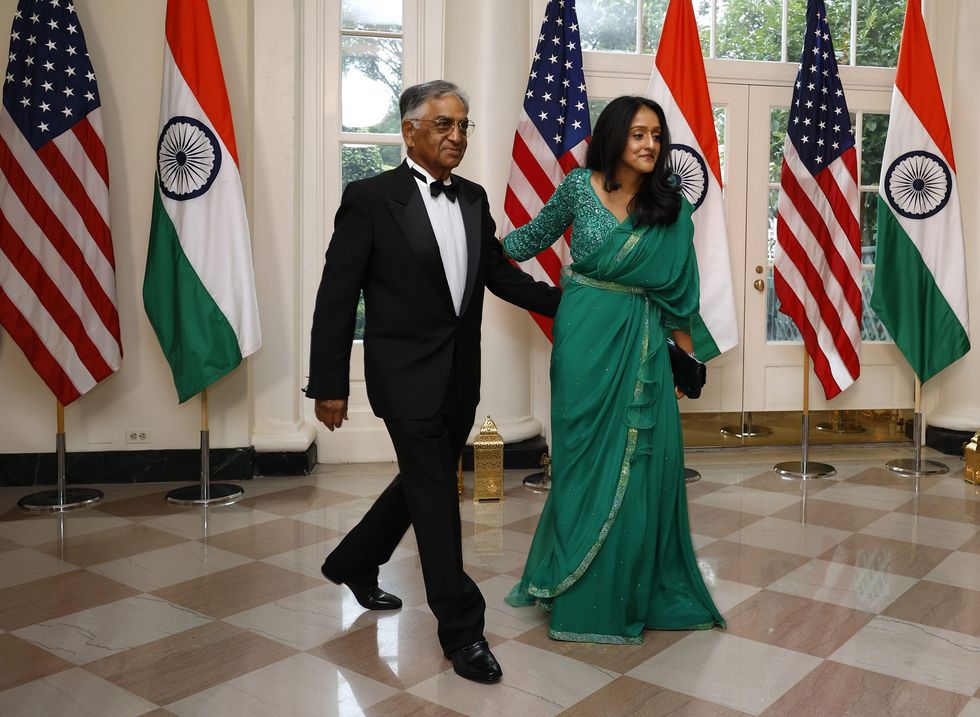
The event laid the foundation for enhanced cooperation, collaboration, and shared success between India and the US for years to come.
Adding to the distinguished gathering was vice president Kamala Harris, who holds a special place as the first Indian American vice President.
Indian American lawmakers including Pramila Jayapal, Shri Thanedar, Ro Khanna, Ami Bera, and Raja Krishnamoorthi graced the occasion with their presence at the state dinner.
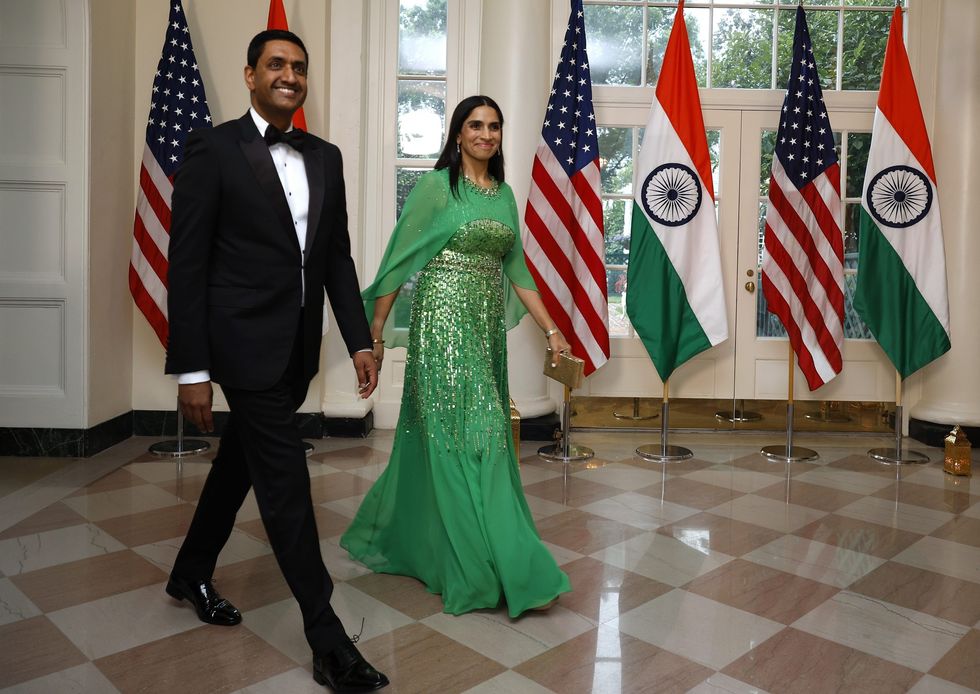
Their inclusion in the guest list highlighted the significant role played by Indian Americans in the political landscape of the US.
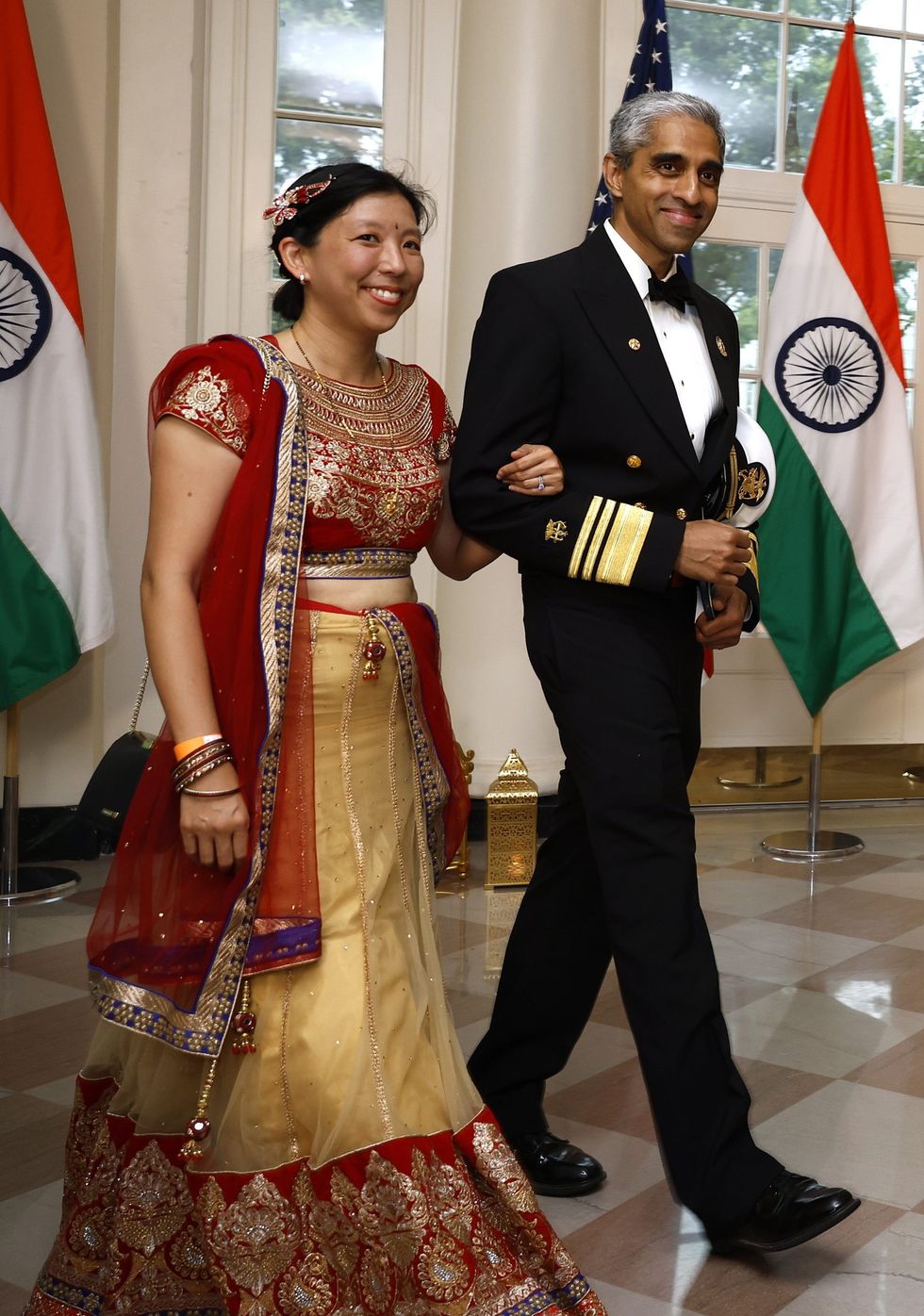
The event also welcomed prominent Indian officials, including India's national security advisor Ajit Doval and external affairs minister S Jaishankar, reinforcing the importance of diplomacy and bilateral cooperation in strengthening the relationship between India and the US.
During the state dinner, Modi delivered a speech and raised a toast to express his gratitude towards his esteemed hosts. He extended his well wishes for good health, prosperity, and the pursuit of happiness.
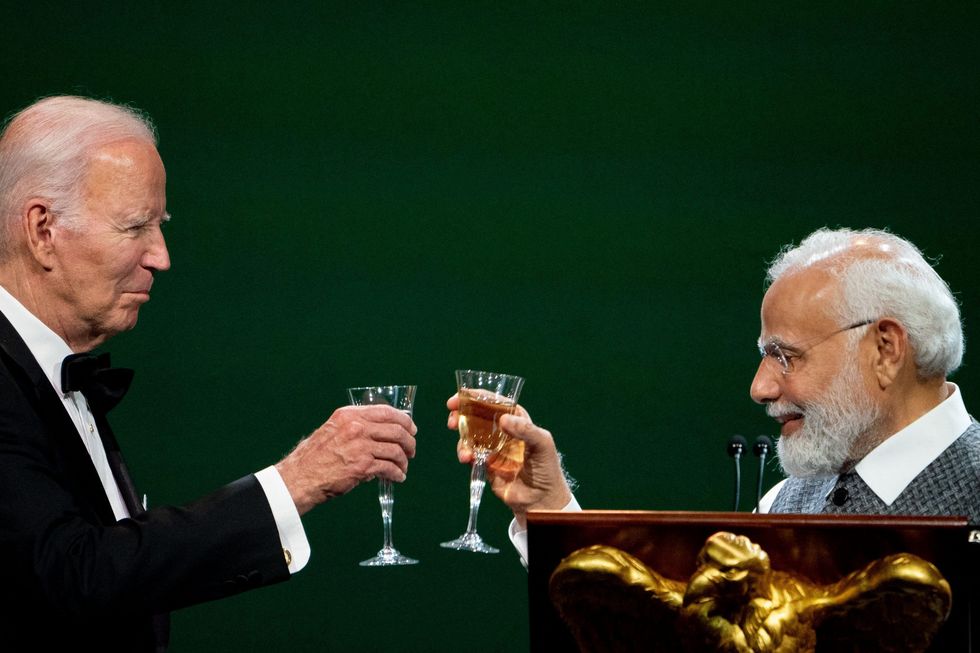
Modi toasted to the values of liberty, equality, and fraternity, highlighting their significance in fostering strong bilateral relations between India and the US. He emphasised the enduring bonds of friendship that exist between the two nations and expressed his desire for their everlasting growth and prosperity.
